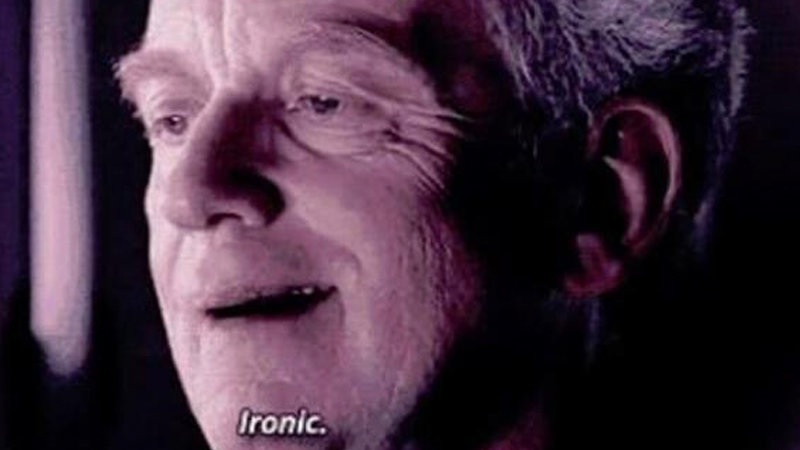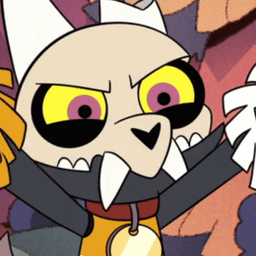- cross-posted to:
- memes@lemmy.ml
- cross-posted to:
- memes@lemmy.ml
I always forget how many intrusive ads are on the internet. One time I shared a link to one of my family members and they almost got a virus because of a pop-up ad. The web is actually unusable without uBlock Origin.
I shared a link from a movie streaming site not knowing that without uBlock Origin the page was covered in nearly pornographic mobile game ads.
ublock origin is the best! I currently use it to filter out all twitter blue users :)
We have made mistakes.
We wanted it all to be free. It was free. I remember the early days of the internet, the webforums, the IRC, it was mostly sites run by enthusiasts. A few companies showing their products to would-be customers. It was awesome and it was all free.
And then it got popular, it got mainstream. Running servers got expensive and the webmasters were looking for funding. And we resisted paywalls. The internet is free, that’s how it’s supposed to work!
They turned to advertising. That’s fair, a few banners, no big deal, we can live with that. It worked for television! And for a while that was OK.
Where did it all go sideways? Well, it was much too much effort to negotiate advertisement deals between websites and advertisers one website at a time, so the advertisement networks were born. Sign up for funding, embed a small script and you’re done. Advertisers can book ad space with the network and their banner appears on thousands of websites. Then they figured out they can monitor individual user’s interests, and show them more “relevant” ads, and make more money for more effective ad campaigns.
And now we have no privacy online. Which caused regulators like the EU to step in and try to limit user data harvesting. With mixed results as we all know. For one it doesn’t seem to get enforced enough so a lot of companies just get away with. But also the consent banners are just clumsy and annoying.
And now we’re swamped with ads, and sponsored content written by AI, because capitalism’s gonna capitalism and squeeze as much profit as they can, until an equilibrium is reached between maximum revenue and user tolerance for BS. Look up “enshittification”
I wonder how the web would look like if we had not resisted paid content back then. There were attempts to do things differently. flattr was one thing for a while. Patreon, ko-fi and others are awesome for small creators. Gives them independence and freedom to do their thing and not depend on big platforms or corporations. The fediverse and open source are awesome.
There’s still a lot of great stuff out there for those of us who know where to look. But large parts of the internet are atrocious.
I feel like that’s where online payment systems really let us down. If there was an easy universal way to pay a few cents to view content and it wasn’t a privacy and fee nightmare, I’m sure people would have no problem doing that. Digicash systems come to mind, I hope they could make a comeback one day.
But I also fear a lot of the damage could’ve been done already, kids who grow up with the internet now will probably only remember big tech platforms and may not be very eager to try out something more complicated.
Running servers got expensive
No it didn’t. Running a server today is dirt cheap compared to the bad old days. So is registering a domain. Getting a TLS certificate doesn’t cost anything at all.
However, there are a lot more people here now. It used to be you could feasibly run a moderately popular website off a single server and it’d be fine. Now, with billions of people on the Internet, you need an army of servers distributed around the world if your site gets even remotely popular.
But also the consent banners are just clumsy and annoying.
That’s a feature, not a bug. Consent banners were manufactured as a way to turn public opinion against GDPR and generate political pressure to repeal it. “Look at how those Europeans ruined the web!” GDPR was supposed to pressure these unscrupulous advertisers into giving up their spooky tracking, but they did this instead. And it’s working—most people blame GDPR for ruining the web, not the sleazeballs who actually ruined it.
Road to hell being paved with good intentions and all, I guess. The reason sites all have the cookie permission dialog now is because of the GDPR, which has the right idea on data privacy, but the implementation wound up being so terrible that it winds up doing this. Prior to that dialog, they’d just store/read the cookies without permission (though lots of people would proactively sandbox browsers to make it a non-issue). I honestly can’t decide which is worse, at this point.
I like the ones that show the prompt for “we’ve detected an ad-blocker” with the option you can click for “continue without disabling and not supporting us”. Guilt trips work in human to human interactions, but not for random Internet prompts.
Of course I’d prefer the web simply not using cookies on every single site I visit (therefore not needing the prompt), but that’s not going to happen. Sites have to monetize somehow to stay alive.
The reason sites all have the cookie permission dialog now is because of the GDPR, which has the right idea on data privacy, but the implementation wound up being so terrible that it winds up doing this.
GDPR is not at fault here though, since it does not require asking for consent if the processed data is necessary for the purpose of the provided service. For example, a web shop usually wouldn’t have to ask for permission to store items in the shopping part because that is a necessary part of the online shopping process. In that sense, requiring the consent dialog for all unnecessary purposes is better as you can at least see who’s trying to screw you over. Don’t kill the messenger here.
I think it’s also important to remember that websites can only get away with these annoyances because it a) is easily automatable and b) has been the default mode of operation for decades. If restaurant waiters today started asking guests if they could sell info on what and when you ate, who you were with, and what you looked like, everyone would be creeped out. Before GDPR, it was pretty much normalized to do the same thing on the internet without even asking for consent.
Firefox + uBlock Origin + Reader View
Reader view is pretty good at decluttering the web and uses less power on laptop and phone as well.
deleted by creator
The communists cut many internet cables for some anti-capitalism reason!

I miss the old internet

People who wanna see mee hihiii : http://adfoc.us/870511108889439 +18 hihi .
I think we have 10-15 years or so left before the internet becomes totally unusable due to ads, paywalls and general bad design all over the place.
2 years, optimistically. 1 year if you want to be a pessimist and realist like me. Current amount of content needs to exist on internet with the users hooked onto big sites. Content is being purged, users are going away.
Where are users going? Genuinely curious, as everything seems to be in the Internet nowadays
Some are quitting social media altogether. Others are gathering on fewer websites outside of Big Tech i.e. Fediverse. Some are using few platforms like Telegram and/or Discord. Some simply heavily restrict usage while sticking to big platforms. Many are simply social butterflies that love their Snapchat, Tinder and Instagram for hookups.
Tinder I get, but Instagram for hookups? Cmon now.
As true as it gets. FB Messenger and Snapchat also serve that purpose.









